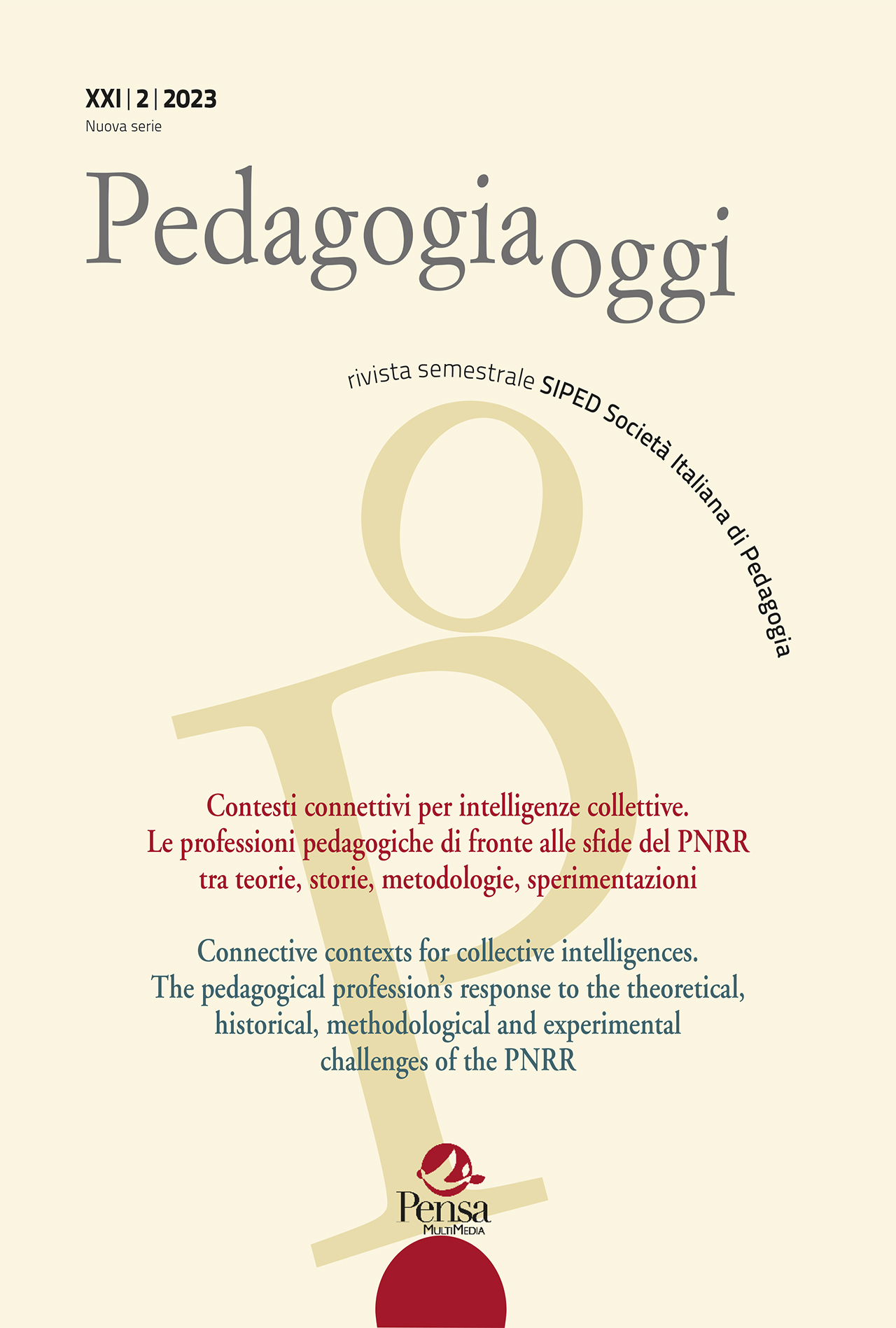Curriculum Innovation in Higher Education in our Interconnected World: Collaborative Learning for a more Equitable and Sustainable Future
DOI :
https://doi.org/10.7346/PO-022023-03Mots-clés :
University, Pedagogical approaches, Collaboration, Transformative learningRésumé
This paper emphasizes the need to provide students and teachers with knowledge and skills to tackle global
challenges as responsible professionals and citizens. To achieve this, universities need to encourage curriculum
innovation to prepare students to contribute to a sustainable future through collaborative learning.
Collaborative learning values interdisciplinary learning, boosts students' collaborative skills, and facilitates teachers
and students working and learning together. To accomplish this, universities need to empower faculty members
with professional development and supportive workplace policies that encourage collaboration.
With less than a decade to achieve the Sustainable Development Goals (SDGs), and the rise of the technoscientificrevolution and collaborative intelligences, understanding and acting on these intricate connections
between the environment, prosperity, and social wellbeing is essential. We expect universities to collaborate,
therefore university curricula need to recognise and build these capacities for collaboration in both staff and
students not just for an inter-connected but for a better world.




